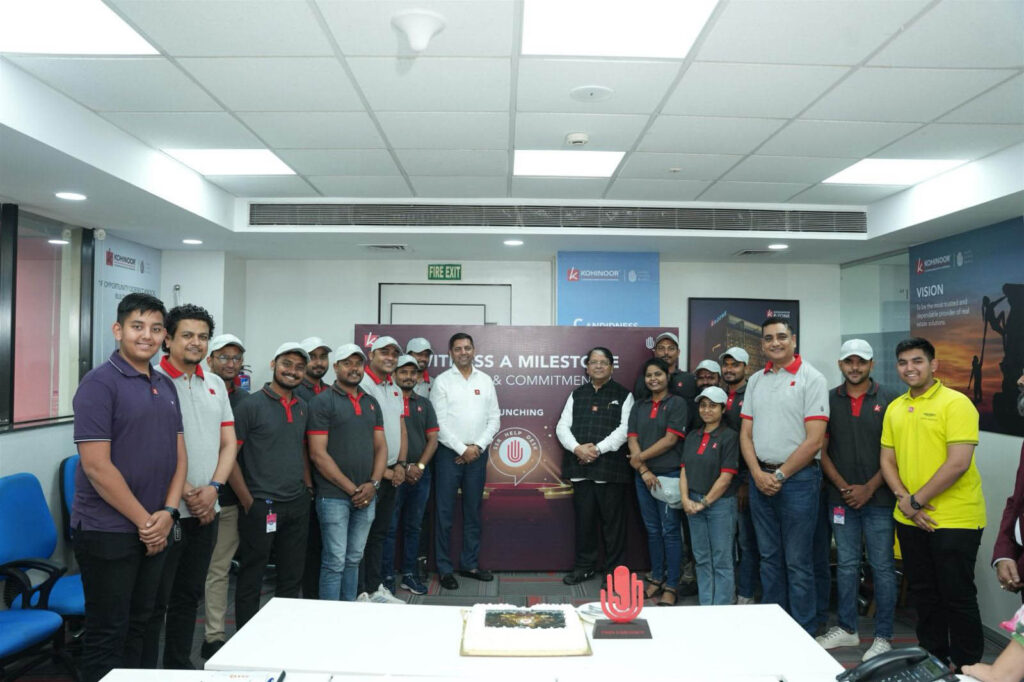Mumbai, 21 April 2024: The residential segment continues to drive the Indian real estate market, which also reflects in the land deals it is generating. Amid all-time high residential demand, several large and listed developers and other entities continued to snap up land. Other than residential, commercial, retail, industrial and logistics & warehousing are also driving prime land deals in key locations across India. ANAROCK data indicates that various developers and entities sealed approx. 101 separate land deals in fiscal year 2023-24, cumulatively accounting for nearly 2,989 acres across the country. In contrast, FY-2022-23 saw 88 land deals for approx. 1,886 acres closed across various cities. “Interestingly, out of the total land deals in FY-24, over 83 deals for about 1,135 acres were closed in the top 7 cities alone”, says Anuj Puri, Chairman – ANAROCK Group. “The remaining 18 deals, accounting for over 1,853 acres, were sealed in various tier 2 and 3 cities like Ahmedabad, Ayodhya, Jaipur, Nagpur, Mysuru, Ludhiana, and Surat. Tier 2 & 3 cities have once again emerged as redoubtable growth engines, thanks to their rapidly improving infrastructure and growth opportunities.” Among land deals in the top 7 cities, NCR topped out with 29 deals for 313+ acres, followed by MMR with 19 deals for approx. 157+ acres. Notably, in terms of total land area, Bengaluru saw 14 deals for 490+ acres transacted – the highest among all top 7 cities. The number of deals in FY 2024 has risen significantly – from 88 deals for 1,886+ acres in FY23 to approx. 101 deals for 2,989+ acres in the current financial year. In terms of total area, around 58% more land has been purchased in the FY 2024 as compared to FY 23. “At approx. 4.93 lakh units, residential sales across the top 7 cities have created a new peak in FY2024,” adds Puri. “In particular, large and listed developers have seen very high sales, and it makes sense for them to buy land across prominent urban micro-markets. Resultantly, the previous financial year saw some very prominent land deals taking place.” Proposed Developments Of the total land deals in FY-24, around 80 separate deals for approx. 2,252 acres are for proposed residential, plotted development & township projects. In the residential category, deals were closed in Pune, Bengaluru, MMR, Hyderabad, NCR, Chennai, Mysuru, Ayodhya, and Jaipur. Deals for proposed plotted development projects were sealed in cities like Sonipat, Nagpur, Surat and Ahmedabad, while township projects are slated in Ahmedabad, Bengaluru, Thane, Ludhiana and Ghaziabad. Commercial and retail together saw 4 separate deals for over 42 acres closed. Of these, 3 were for commercial developments – one each in Gurugram, Noida and Mumbai – and one retail deal was closed in Thane. At least 79 acres in 4 separate deals have been earmarked for mixed-use developments in cities including Pune, Mumbai and Ludhiana. Approx. 164 acres in 5 separate deals were closed for industrial, IT park, and logistics park in Gujarat, Chennai, Navi Mumbai, Nagpur, and Cuttack. Proposed Developments Area (acres) No. of Deals City Commercial 31 3 Gurugram, Noida & Mumbai Industrial 38 1 Gujarat IT Park 11 2 Chennai & Navi Mumbai Logistic Park 115 2 Nagpur & Cuttack Manufacturing 411.75 3 Bengaluru, Gujarat & Andhra Pradesh Mixed-Use 79 4 Pune, Mumbai & Ludhiana Plotted Development 481.5 4 Sonipat, Nagpur, Surat & Ahmedabad Residential 606.13 70 Pune, Bengaluru, MMR, Hyderabad, NCR, Chennai, Mysuru, Ayodhya, Jaipur, Retail 11 1 Thane Township Project 1164.33 6 Ahmedabad, Bengaluru, Thane, Ludhiana & Ghaziabad Educational 8.61 1 Gurugram Not yet Decided 31.52 4 Kolkata, Chennai, Karnala Village (Maharashtra) The top developers who bought land parcels for various developments in FY24 include Godrej Properties, Eldeco Group, Adani Realty, Signature Global, Oberoi Realty, DLF India, Prestige Group, K Raheja Corp, and Brigade Group, among others. Top Land Deals Across Cities Deal in Quarter Buyer City Approx. Size (in Acres) Proposed Development Q1-FY2024 ESR India Sanand (Gujarat) 38 Industrial Q1-FY2024 Birla Estates Bengaluru 28.6 Residential Q1-FY2024 Foxconn Bengaluru 300 Manufacturing Q1-FY2024 K Raheja Corp Mumbai 4 Residential Q2-FY2024 Prestige Group Mumbai 2.3 Residential Q2-FY2024 Godrej Properties Gurgaon 7.91 Residential Q2-FY2024 Arvind Smartspace Ahmedabad 204 Township Project Q2-FY2024 UK’s Malhotra group Ludhiana 300 Township Project Q3-FY2024 Eldeco Group Greater Noida 8.9 Residential Q3-FY2024 Greenscape IT Park Navi Mumbai 4 IT Park Q3-FY2024 ESR India Nagpur 58 Logistic Park Q3-FY2024 Mahindra Lifespaces Pune 5.38 Residential Q4-FY2024 DLF Homes Developers Gurgaon 29 Residential Q4-FY2024 Lodha Ayodhya 51 Residential Q4-FY2024 Brigade Group Chennai 16 Residential & Hospitality Q4-FY2024 Signature Global Gurgaon 20.32 Residential Source: ANAROCK Research
















